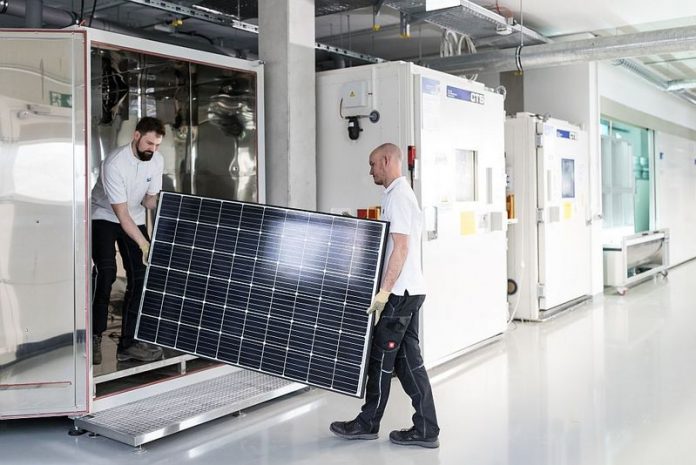Scientists at Germany’s Center for Solar Energy and Hydrogen Research Baden-Württemburg (ZSW) this week introduced new testing protocols designed to give PV investors and project developers certainty about solar panel resistance to potential induced degradation (PID).
The tests were designed to go well beyond those stipulated by the International Electrotechnical Commission in its standard IEC TS 62804-1 regime, which typically requires modules to undergo damp heat testing at 85 degrees Celsius and 85% humidity for 96 hours at the module’s rated voltage – 1,500 V in most cases – and to retain at least 95% of initial performance after the trial.
PID is caused by leakage currents between a panel’s semiconductor material and other system elements and can reduce a module’s open-circuit voltage and maximum power point over time, in some cases significantly.
‘PID-free’
Anti-PID measures exist and manufacturers have been selling ‘PID free’ modules for years but the defect still represents a significant threat to long-term performance and a worry for investors and insurers. While factors outside the module can contribute to PID, the most effective approach to avoiding it appears to be engineering for better resistance in devices.
The ZSW, working with other European institutes and module manufacturers under the EU-funded Solar EraNet project, sought to go beyond the IEC standard and subject modules to “the wear and tear of decades in operation” to better understand PID susceptibility. For the researchers, that meant increasing the voltage to 2,500 V and running the test for 1,000 hours with a conductive metal foil providing contact to the modules. The test also assumes a ‘worst case’ scenario and did not take into account recovery effects – known to occur in the hours of darkness.
Proof of concept
To validate its new ‘heavy-duty’ protocol, the ZSW tested two types of solar cell – one known to have strong PID resistance and another which was more susceptible to the defect – and combined them, separately, with three different encapsulant materials: standard EVA(ethylene vinyl acetate); an EVA designed for additional PID resistance; and a polyolefinsubstance. All the encapsulants had passed the standard IEC test at 1,500 volts.
Modules with standard EVA lost around 5% of performance after ZSW testing equivalent to two years in the field. Those with the specially engineered EVA encapsulant stood up to the equivalent of 22 years before losses passed 5%, and the polyolefin encapsulated modules, according to the ZSW, showed practically no signs of PID even after the equivalent of 60 years in operation.






